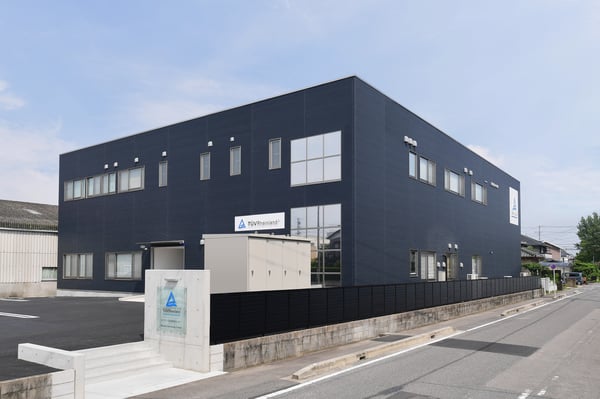 TÜV Rheinland Japan announced the start of operation of the Mobility Technology Center (MTC). Sited in the city of Chiryu in Aichi Prefecture, the MTC is dedicated to the automotive industry. It was opened for performance of on-board electronic EMC & wireless testing, the needs for which are expected to rapidly increase going forward.
TÜV Rheinland Japan announced the start of operation of the Mobility Technology Center (MTC). Sited in the city of Chiryu in Aichi Prefecture, the MTC is dedicated to the automotive industry. It was opened for performance of on-board electronic EMC & wireless testing, the needs for which are expected to rapidly increase going forward.
With an extended floor area of 1,154.6 square meters, the MTC is a sophisticated structure housing two automotive anechoic chambers, one 3M method anechoic chamber, and one shielded room. The facilities enable the performance of testing of on-board electronic control units (ECU) and the electromagnetic compatibility (EMC) of electrical & electronic devices, as well as wireless testing of smart keyless systems and other short-range devices (SRD). It should be added that the EMC testing consists of both electromagnetic interference/emission (EMI) testing and electromagnetic susceptibility/immunity (EMS) testing.
Advances in automotive technology in recent years and ECU/EMC
Recent years have seen fast-paced technical advances in the automotive industry. These advances have spawned a new market referred to as "CASE," an acronym for "connected," "autonomous driving," "sharing/service," and "electric-powered vehicles." One of the key technologies supporting the CASE market is the control of vehicles and other elements by ECU. Up to 20 or more ECU are installed in today's automobiles for control of systems by means of electronic circuits. They are used for control of all sorts of items including the power train, chassis, passive safety, and active safety. They are likewise supporting autonomous driving and the development of advanced driver assistance systems (ADAS).
It may also be noted that, for the proper operation of ECU, it is important to ensure both the control of emissions in order to prevent any influence on other devices and instruments by the propagation of electromagnetic waves outside, and immunity against the influence of electromagnetic waves from the outside. The spread of the aforementioned CASE technology from now on is clearly going to be accompanied by the development of more advanced on-board systems, an increase in safety regulations governing these technologies, and the inclusion of EMC as a precondition in these regulations. This, in turn, points to accelerating growth in the demand for assessment of technical and legal conformity, with the support of third-party technical services.
TÜV Rheinland Japan’s certification of conformity (type approval)
TÜV Rheinland established Mobility Business Stream simultaneously with the start of motor vehicle inspections and the driving license system in Germany in 1904. For the more than 110 intervening years, we have been involved with technology development and safety in the automotive industry in step with the progress of automotive technology.
TÜV Rheinland Japan performs requisite regulation investigation and confirmation of legal conformity at the stage of automobile planning & design, as well as providing technical support for development and performing tests consigned by manufacturers at all stages from development to testing and certification. We therefore have a wealth of experience in certification of conformity extending over many years. Of particular note is our employment of many experts who have the capabilities needed for examination of all regulation requirements in all vehicle categories. Our experts make proper interpretations of complicated regulations in different countries, and have outstanding expertise in the proposal of testing plans required for conformance with regulations to manufacturers. We are determined to ensure automobile safety, and to meet the demand for EMC testing, whose market is expected to expand over the coming years, with the opening of the MTC at this time.
Details of the MTC
EMC regulations applied to automotive components are contained in United Nations Regulation 10 (UN R10). The safety laws and regulations including EMC requirements currently number 22. More specifically, they encompass items such as steering (including Level 2 automated driving), collision mitigation brake control systems, automatic accident call units, collision mitigation brakes for passenger cars, avoidance of collision with bicycles beside the vehicle, and Level 3 automated driving. Our staff at the MTC are able to judge compliance accurately to all of these regulations, including the EMC requirements.
While the time required for the testing varies with the component, the MTC can complete an EMC test on a product that is not very functionally complex in about two days. A test report is issued after the testing. Because TÜV Rheinland has also been a designated technical service by the European Vehicle Type Approval Authorities, the client can make applications and obtain approvals with a minimum of procedural work.


